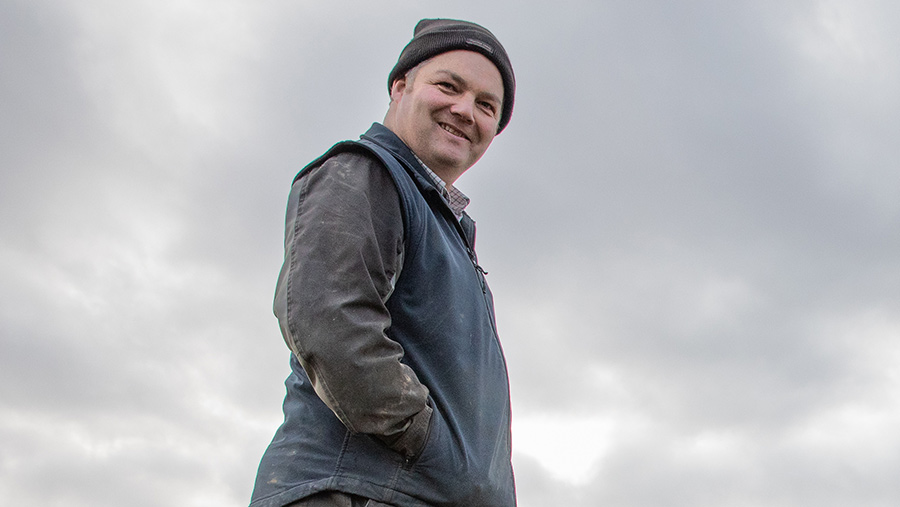Farmer Focus: Rain and series of breakdowns add to challenges
 © Angela Waites Photography
© Angela Waites Photography Farmers are nothing if not adaptable, and it’s a good job, too. September was a tester at Brickyard Farm.
We got the cover crops drilled, beans, spring oats and barley cut, potatoes topped and cultivation done in the Indian summer. Then it rained.
It took more than a fortnight to bale the oat straw, drilling quickly became a stop-start frustration, and the breakdown fairy took up residence in the yard.
See also: Should you use DMN in potato stores this season?
The contracted spring malting barley was too high in nitrogen, so became feed at a £55/t discount.
To add insult to injury, its specific weight was just below par, so it attracted a further £2/t deduction. It was a good job it yielded better than normal.
The oats brought some positivity though – they turned in the usual 5.4t/ha of decent milling grain with not much in the way of cost, and I sold them for decent money.
We set our dresser up to clean some farm-saved seed beans, and an auger motor decided to retire on us.
The power washer hose sprung a leak, the drill lost a coulter boot, the baler lost a tie arm in a field, a bale spike broke, and a replacement wheel bearing for a cultivator took a week to arrive.
Then the hedgecutter joined the party with an annoying intermittent electrical fault. Late-moving grain has also done nothing to relieve my straining overdraft as the reality of an arable farmer’s cashflow bites.
Patience and resolve have been tested. Despite our best endeavours with post-season machinery appraisal forms and planned maintenance, sometimes stuff just goes wrong.
Social media suggests that I am a long way from alone with this.
My response is not to worry about things I cannot control – which, when it comes down to it, is most of the aforementioned.
Tomorrow is a new day. Machinery can be fixed, rain will stop and grain will move, like it always has done.
Later this week will see the challenge of the potato harvest commence, for which we are just about ready.
Yield digs look promising, quality decent, and with a slightly more inspiring contract price this year, I’m quite looking forward to it.
We could just do with the rain pausing so we can get some wheat drilled first.


